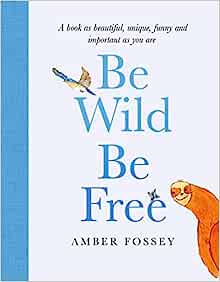Writing is traditionally a creative venture; a vocation that requires anguish, insomnia, maybe a few glasses of an alcoholic liquid and a total lack of routine (or is this just me?) The point is, writers don’t tend to be known for their brilliant business and marketing skills; that was always the job of the traditional publisher, but in this new world of self-publishing and self-promoting, great writing alone is just never going to cut it.
Another typical writer’s characteristic is a tendency to be a bit of an introvert, and that presents a problem when it comes to promoting your work. Even if you hide behind a pen name, you will still need to chase after every scrap of publicity you can find; in fact, you probably need to spend as much time publicising your book as writing it. The game has definitely changed and unless you take self-promotion very seriously, well, you don’t stand much of a chance at success. You can’t just assume that because your book is incredible, people will find it; they won’t.
The bottom line is this: you are producing and selling a product and competing for customers, and the customers don’t know you’re there unless you advertise yourself. Traditional publishing largely spared the author the burden of promoting their work, but the author paid a high price for that service, sacrificing a ridiculous portion of the royalties. Self-publishing allows much more author control and a larger chunk of the profits, but the negative side of these benefits is the absolute necessity to be able to excel at marketing your book if you want to make money from it. We’ve all seen some of the most terribly written books climbing the Amazon best-sellers lists and it’s certainly not the writing that’s propelling them; it’s the marketing skills of the author. Conversely, some of the best written books are languishing in Amazon’s grubby depths for the simple reason that their authors just don’t know how to market them.
One of the most successful ways to market your book, according to a large majority of self-published authors, is an email list. I’m going to be completely honest; I was very slow to get on board and it was to my cost; an email list is essential to create an initial interest in your book. You don’t have to spam everyone on your list; just a brief few lines is enough to let people know you have a book release and the link posted into the body of the email so they can find your book in store with just one click.
One of my favourite authors and internet marketers is Jim Kukral, and he recommends marketing your book before it’s even written. He says that the only way to build an audience is to use the power of anticipation, suggesting that once you have a solid idea for a book, get your cover and your blurb and advertise it. To many authors, that seems the wrong order, but he insists this is the best way to market; building a buzz around the book, releasing excerpts on your blog and engaging buyers and ensuring an eager audience. Playing Devil’s Advocate on this method, I think that it would have maximum effect if you already have an audience or a fan base; I imagine that a new author wouldn’t have much success building a massive following in this way, but even a small audience is better than none – a sale is a sale at the end of the day.
To follow the business model of authorpreneurs such as Steve Scott and Stefan Pylarinos you need to put away thoughts of creating one or two literary masterpieces over the course of your lifetime that will keep you financially secure in your dotage and treat your books as products which need to be advertised and marketed, and quantity is as important as quality when it comes to making enough money to pay a few bills. Many authors remain precious about their work and don’t want to ‘sell out’ their creative talent and that’s completely understandable, but in the changing world of literature, an increasing number of readers are looking for shorter novellas and 30 page non-fiction information products; it’s part of the busy world in which we live.
The question is: What kind of author do you want to be? If you want to make a business out of your craft, you need to follow market trends. If you want to be short-listed for the Booker prize, don’t give up the day job.



